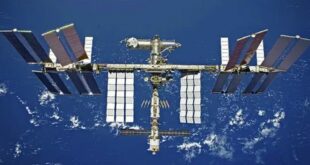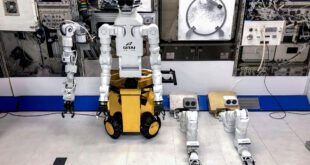 Edinburgh, 3 August 2021. – Russian experts recommend that the country builds its own space station called Ross, the official news agency Tass reported.
Edinburgh, 3 August 2021. – Russian experts recommend that the country builds its own space station called Ross, the official news agency Tass reported.
ROSS – the Russian orbital service station – could become “an evolutionary step in the development of the program on exploration of the Moon, flights to Mars, and the implementation of innovative scientific and technical space programs,” the Russian state corporation Roscosmos said, according to Tass.
The council of chief designers has considered the current state of the Russian segment of the International Space Station (ISS), Tass said, and concluded that due to aging of the largest part of the station’s equipment further exploitation of the Russian segment of the ISS after 2024 “creates additional risks”.
The Russian science module Nauka had just recently caused a significant technical glitch on the ISS with a misfiring of Nauka which tilted the station with the crew on board right after the module´s docking.
The Energiya Rocket and Space Corporation would analyze the state of the Russian segment of ISS and take organization and technical measures on its maintenance in the period when the new orbital station is being created, the Tass report said.
The ISS could retire in 2024 or in the years to come.
The launch of its own Russian space station would follow the Chinese example – China recently put the first module of its Taingong station in space. It could shift decades of cooperation in low Earth Orbit between Russia, Europe and the United States either into a national activity or a new alliance with China and other countries.
Russia and China are already collaborating on a lunar space station and a lunar base and have invited international partners to contribute to the project.
 SpaceWatch.Global An independent perspective on space
SpaceWatch.Global An independent perspective on space




